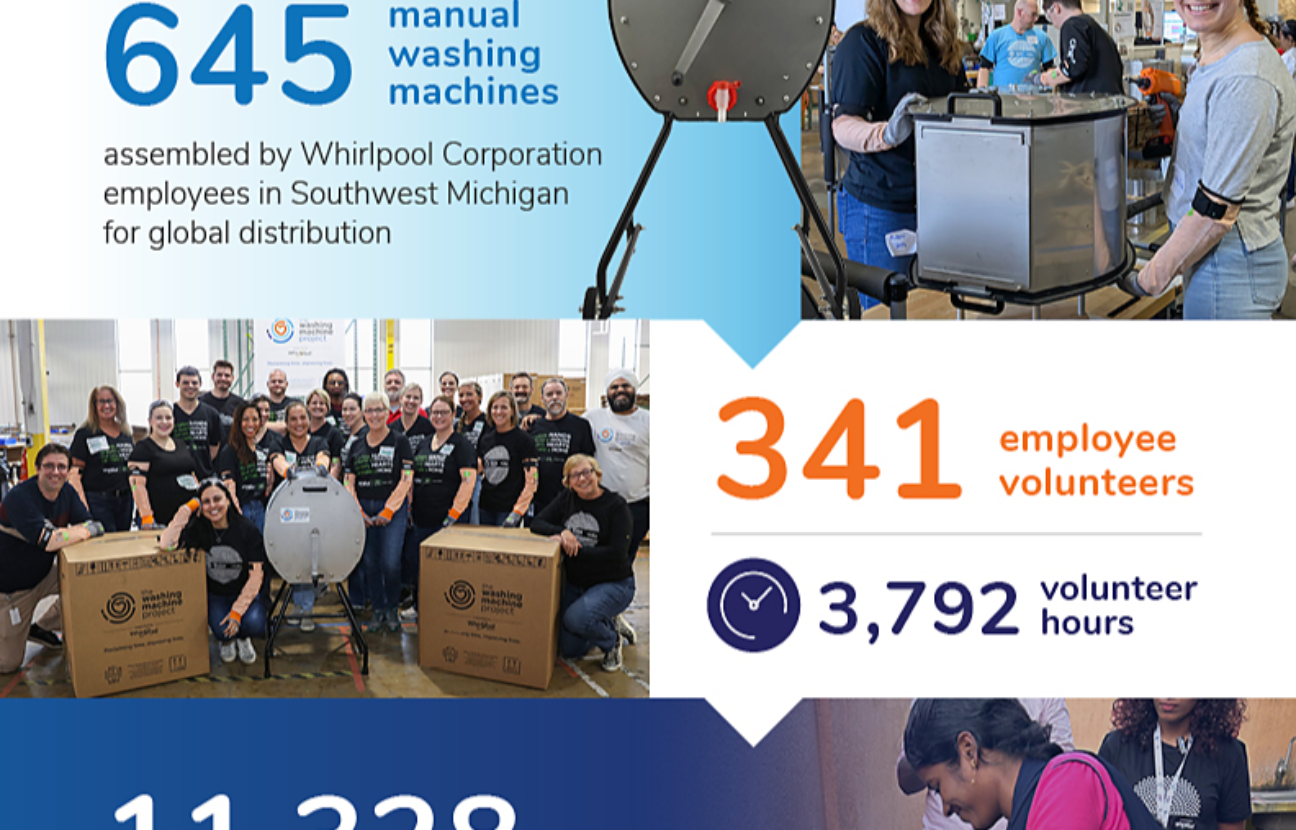Bridging the Global Washing Divide
How Whirlpool Foundation Is Championing Clean Dignity for All

In many parts of the world, the simple act of doing laundry is just that—simple. It’s a matter of tossing clothes into a machine, pressing a button, and going about your day. But for billions of people globally, laundry is a laborious, time-consuming, and physically demanding task. This stark difference between how laundry is done in developed versus developing regions is known as the “global washing divide.”
And it’s not just an inconvenience—it’s a barrier to dignity, education, health, and economic empowerment. The Whirlpool Foundation is working to change that.
What Is the Global Washing Divide?
The global washing divide refers to the unequal access to laundry solutions between high-income and low-income communities around the world.
In developed countries, over 80% of households have access to washing machines. But in many low- and middle-income countries, especially across Sub-Saharan Africa, South Asia, and parts of Latin America, families often rely on handwashing clothes, typically done by women and children, using limited water and harsh detergents.
This divide has deep ripple effects:
-
Time Burden: In some regions, people spend up to 20 hours per week on handwashing clothes.
-
Health Risks: Prolonged exposure to cold water and repetitive scrubbing causes skin damage, joint pain, and long-term musculoskeletal problems.
-
Educational Barriers: Girls often miss school to help with household chores like laundry.
-
Economic Impact: Time spent on laundry is time not spent in education or earning income.
Put simply, access to a washing machine—or the lack of it—can influence the trajectory of an individual’s life.
How the Whirlpool Foundation Is Tackling the Issue
Whirlpool Corporation, a global leader in home appliances, established the Whirlpool Foundation to drive social change through innovation and inclusion. One of its flagship initiatives is tackling the global washing divide through programs that bring dignified, accessible laundry solutions to underserved communities.
Here’s how:
1. The "Laundromat of the Future"
In collaboration with local nonprofits, the Whirlpool Foundation has helped create community-based laundromats in areas lacking basic infrastructure. These laundromats are often powered by renewable energy and provide free or low-cost access to washing machines for residents.
A notable example is the partnership with Habitat for Humanity and other local NGOs to build laundromats in areas of high need, including parts of India, South Africa, and Brazil.
2. Care Counts™ Program
In the U.S., Whirlpool launched the Care Counts™ Laundry Program, which provides washers and dryers to schools in low-income communities. Why? Because research showed that students who lacked clean clothes were more likely to skip school. Since its launch, the program has helped thousands of students improve attendance and regain confidence.
3. Social Washing Machines
In developing regions, the Whirlpool Foundation is also exploring ultra-low-cost, water-efficient washing machine designs that require minimal electricity—ideal for off-grid or energy-poor communities. These designs aim to offer a scalable solution that doesn't rely on traditional infrastructure.
4. Advocacy and Awareness
The Foundation also plays a role in raising awareness about the washing divide and positioning it as a social equity issue, not just a matter of convenience. By spotlighting the connection between laundry access, dignity, and opportunity, they’re helping shift the global conversation.
Why This Work Matters
Laundry might seem like a mundane aspect of daily life, but access to clean clothes is a powerful equalizer. It affects school attendance, self-esteem, job opportunities, and overall well-being. By working to eliminate the global washing divide, Whirlpool Foundation is tackling a hidden inequality that disproportionately affects women and children.
As we think about global development and infrastructure, it's crucial to include access to basic household technologies—not just for convenience, but as a matter of human dignity.
Looking Ahead
Whirlpool Foundation’s efforts represent a growing trend among corporations: using their core competencies to address global inequalities. In this case, leveraging Whirlpool's appliance expertise to bring real, tangible relief to communities that need it most.
While the challenge of the global washing divide is vast, every spin cycle that relieves someone of handwashing clothes brings us a step closer to a more equitable world.
For more information about the Whirlpool foundation and the Washing Machine project, go to: